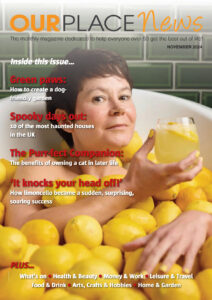This lucrative corner of the market is still eager to travel and enjoy new experiences but with an eye on safety and value for money, a study reveals.
 TTG Media reports that older travellers are still planning to go away in 2018 but many want to reduce how much they spend on their trips.
TTG Media reports that older travellers are still planning to go away in 2018 but many want to reduce how much they spend on their trips.
Brexit, the weak pound, economic “headwinds” and security concerns are also all having an impact on the holiday plans of consumers in the lucrative over-50s market. This was one of the main findings in a survey of 1,000 UK consumers aged 50-plus, which has been carried out by reviews and recommendations website Silver Travel Advisor.
The annual Silver Travel Industry Report 2018 found that the majority of holidaymakers in this age group (63%) were not prepared to take a holiday in destinations where there have been terrorist attacks.
Currency and Brexit concerns are also affecting destination choice – 35% will stay in the UK for their holidays as a result of Brexit and the low value of the pound against other major currencies. A further 17% are looking to travel to destinations that do not use the euro or US dollar to take advantage of better exchange rates. However, the survey also reveals that 30% of consumers in this age group are planning to holiday in Europe over the next year before any potential restrictions, such as visas, are imposed on travel to EU countries following Brexit.
There are signs that those in the over-50s market are cutting back on the overall amount they are prepared to spend on holidays this year: the proportion likely to spend more than £3,000 per person has dropped from 48% in 2017 to 40% this year. There is also an increase in the number of people planning to spend less than £1,000pp this year owing to “economic concerns”- this proportion has almost doubled from 11% to 20% over the past year.
Despite these trends, the vast majority do not intend to reduce the number of trips they take this year; with 65% planning to take the same number as last year and 20% likely to go on more breaks. Only 15% will be taking fewer breaks. The survey also reveals that price is not the biggest factor in choosing a travel company to book with.
Getting the cheapest price is a major consideration for only 24% of consumers surveyed when choosing a travel company. Price lags behind other key factors such as previous good experiences with a travel firm (72%), company reputation (59%), customer service (57%) and offering full consumer protection (49%).
Debbie Marshall, managing director of Silver Travel Advisor, said: “Older travellers seem to be feeling some economic headwinds but they remain determined to travel as much as ever – or more – before any potential health concerns become an issue. “Certainty, security and service is the mantra for success when it comes to the older travellers. Company reputation, the delivery of excellent customer service that is not patronising, the assurance that they will be in safe hands – all these things matter more than price to the silver traveller.”
The survey also identified a trend for the over-50s market to increasingly go online to research and book their holidays. The poll found that 67% of respondents are now researching and/or booking their holidays online – up by six percentage points from 61% in last year’s survey. Despite this growth in using the internet, 24% still prefer to visit a travel agency or speak to an agent on the phone when looking for “holiday inspiration”. But talking to an agent still ranks way below the internet (68%) and travel review websites (70%) as the most popular way of carrying out initial holiday research.
As for making the booking, 15% of respondents still go to a high street agency or call an agent on the phone. While around one-third (34%) complete the booking online through an agency or operator.
“Two-thirds of the over-50s are looking and/or booking online, either through travel agents or direct with travel companies, hotels, airlines and intermediaries,” added Marshall. “The more complicated the booking, the more likely older people are to use travel agents. These are savvy, smart, resourceful people who just happen to be older than most of the working population.”
The research also revealed that city breaks are the most popular type of holiday, followed by ocean cruises and beach holidays, while the favourite activities are learning about the destination, walking/hiking and spending time in a spa. The majority of those surveyed (58%) also said there was “inadequate provision” by travel companies for single travellers and holidaymakers.
(Story source: TTG Media)

